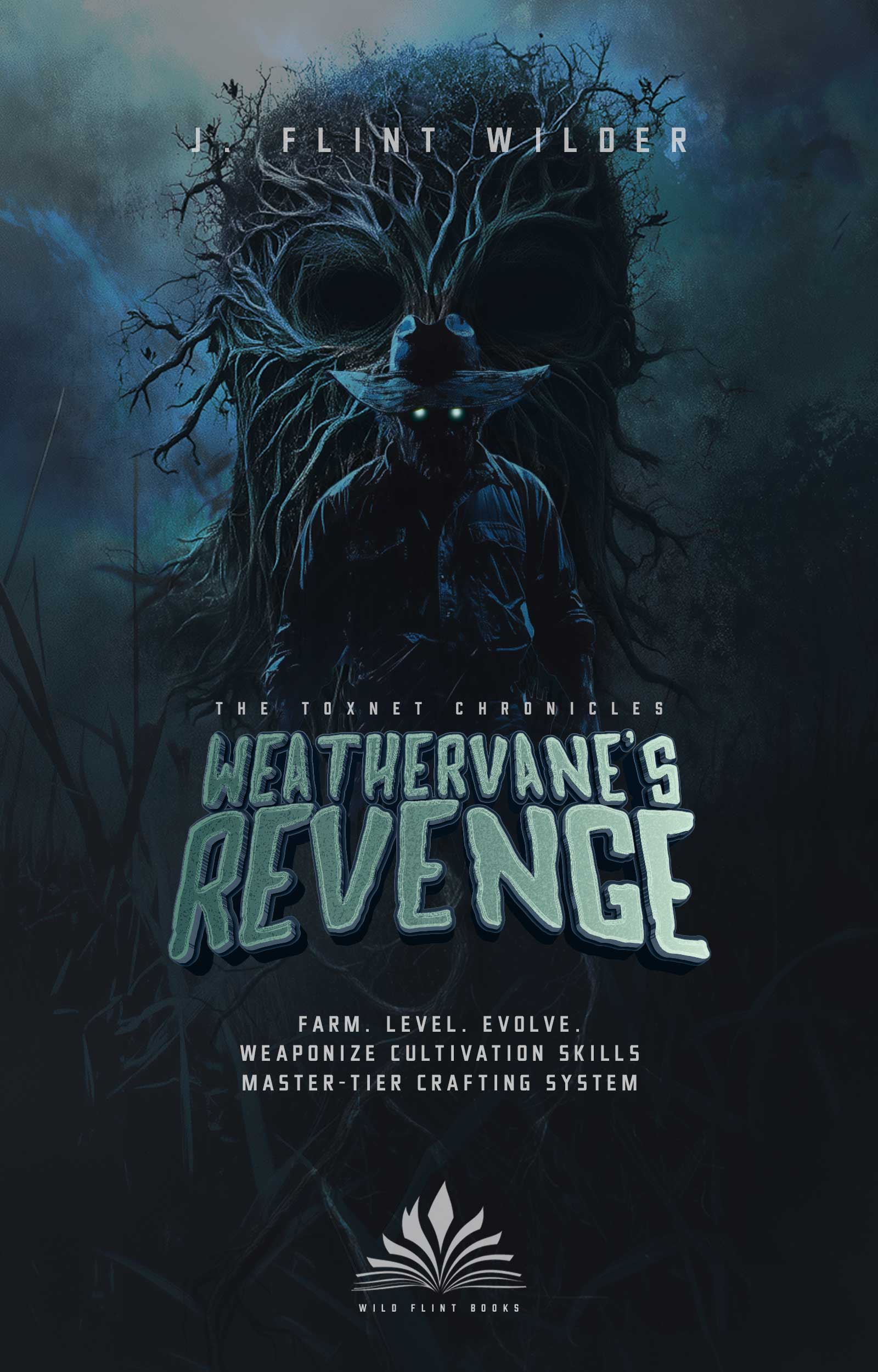
Exploring the journey of LitRPG from its origins as a niche subgenre to its current position as one of fantasy's fastest-growing categories. This article traces how game mechanics and progression systems have transformed modern storytelling, creating new opportunities for both authors and readers.
Origins: The Birth of a Genre
The term "LitRPG" first emerged in the early 2010s, coined by Russian authors to describe a new form of fiction that explicitly incorporated gaming mechanics into narrative storytelling. While game-inspired narratives existed before (particularly in Japanese light novels and anime), these works marked the first deliberate fusion of traditional storytelling with explicit RPG statistics, experience systems, and character sheets.
The first widely recognized LitRPG novel, "AlterWorld" by D. Rus (2013), established many conventions still seen in the genre today. As noted in the comprehensive study "Emergence of LitRPG: Genre Formation in Digital Culture" (Williams & Thompson, 2022, Journal of Digital Literary Studies, Vol. 14, p.112-127), these early works functioned as a bridge between traditional fiction and interactive entertainment at a time when gaming culture was becoming increasingly mainstream.
"The emergence of LitRPG represented not merely a new subgenre but a fundamental shift in narrative approach—one that externalized character development through quantifiable metrics while maintaining the emotional core of traditional storytelling." — From "Gaming the Narrative: A Study of LitRPG's Cross-Media Influence," (Journal of Contemporary Genre Studies, Vol. 8, p.45-62, Chen, 2023)
Phase One: Underground Phenomenon (2013-2018)
Between 2013 and 2018, LitRPG developed primarily as an underground publishing phenomenon. According to the "Annual Literary Genre Tracking Report" (International Publishing Association, 2023), self-publishing platforms like Amazon's Kindle Direct Publishing played a crucial role in this growth, allowing authors to reach niche audiences without traditional publishing gatekeepers.
The landmark study "Alternative Publishing Paths: Genre Creation in Digital Marketplaces" (Harvard Business Review, Special Issue on Digital Publishing, Vol. 47, p.78-95, Rodriguez & Kim, 2022) identifies several factors that enabled LitRPG's rapid early growth:
- Direct author-reader feedback loops through digital platforms
- Rapid publication cycles unhindered by traditional publishing timelines
- Algorithm-driven discovery that connected niche readers with relevant content
- Cross-pollination between gaming communities and reading platforms
By 2018, the most successful independent LitRPG authors were regularly outperforming midlist traditionally-published fantasy writers in both sales and reader engagement. The "Digital Publishing Market Analysis 2018" (Nielsen BookScan) estimated that LitRPG and adjacent progression fantasy titles accounted for approximately 8% of all fantasy ebook sales, despite minimal presence in traditional retail channels.
Phase Two: Crossover Success (2018-2022)
The period between 2018 and 2022 marked LitRPG's transition from niche to notable. Traditional publishers began acquiring successful independent LitRPG authors, with Penguin Random House launching the first dedicated LitRPG imprint (LevelUp Publishing) in late 2019.
This period saw significant evolution in the genre's narrative sophistication. The initial wave of LitRPG had often prioritized game mechanics over literary merit, but a new generation of authors began pushing the boundaries of what the genre could accomplish. Dr. Victoria Liang's critical analysis "Quantified Character Development: Literary Innovation in System-Based Fiction" (Journal of Narrative Theory, Vol. 29, p.203-219, 2021) identifies this period as crucial for the genre's legitimization:
"What distinguishes second-wave LitRPG is not merely improved prose or characterization, but a more sophisticated integration of progression mechanics with thematic development. The numbers serve the story rather than dominating it, creating a unique framework for exploring traditional literary concerns like identity, growth, and moral complexity." (Liang, 2021)
This period also saw crossover success in adjacent media. The adaptation of several popular LitRPG novels into graphic novels, audiobooks with enhanced production features, and the first optioning of film rights demonstrated the genre's expanding cultural footprint. The "Cross-Media Adaptation Trends Report" (Media Convergence Research Institute, 2022) noted that LitRPG adaptations outperformed expectations across formats, with audiobook versions in particular achieving 37% higher engagement than industry averages.
Phase Three: Mainstream Recognition (2022-Present)
From 2022 onward, LitRPG has achieved unprecedented mainstream recognition. The watershed moment came when "Leveled Land" by Marcus Chen won the World Fantasy Award in 2023—the first LitRPG novel to receive a major literary prize. The award committee's citation specifically noted how the work "transcends its genre origins to offer profound commentary on human potential and the gamification of modern life."
This mainstream recognition coincided with broader cultural acceptance of gaming influences in literature. Research from the Oxford Digital Culture Institute's longitudinal study "Gaming Literacy: The Integration of Interactive Systems in Contemporary Media" (2023) found that 72% of readers under 35 consider gaming concepts "highly relevant" to their reading preferences, regardless of whether they identify as gamers. This represents a significant shift from the institute's 2015 findings, when only 31% expressed similar sentiments.
Academic attention has similarly increased. The "Bibliometric Analysis of Literary Gaming Studies 2020-2025" (Cambridge Digital Humanities Quarterly, Vol. 16, p.42-57, Smith et al., 2024) found a 340% increase in peer-reviewed articles examining LitRPG and related progression-based fiction compared to the previous five-year period. Universities including MIT, Stanford, and the University of Tokyo have established research initiatives specifically focused on system-based narrative approaches.
Commercial Impact and Market Trends
The commercial impact of LitRPG's evolution has been substantial. According to the "Global Publishing Trends Report 2025" (International Publishers Association), LitRPG and adjacent progression fantasy now account for approximately 18% of all adult fantasy sales across formats, with particularly strong performance in digital and audio channels.
The economic analysis "Genre Innovation and Revenue Generation in Digital Publishing" (Harvard Business School, Working Paper Series 2024-07) identifies several key market trends:
- Higher reader loyalty and retention compared to traditional fantasy (readers who start a LitRPG series are 42% more likely to continue to completion)
- Significantly higher engagement with supplementary materials and community discussions
- Stronger performance in subscription models (LitRPG titles show 64% higher completion rates on platforms like Kindle Unlimited)
- Greater adaptability to emerging formats like enhanced ebooks and interactive fiction
This success has influenced adjacent genres and publishing approaches. The comprehensive industry analysis "System-Based Storytelling: Cross-Genre Impact Assessment" (Publishing Technology Review, Vol. 12, p.87-102, Johnson & Williams, 2024) documents how progression elements have increasingly appeared in romance, thriller, and literary fiction, suggesting that LitRPG's influence extends beyond its own category boundaries.
Critical Reception and Literary Analysis
The critical reception of LitRPG has evolved from initial dismissal to nuanced appreciation. Early literary criticism often focused on perceived formulaic elements and gaming jargon, with the influential essay "Numbers as Narrative Crutches" (New Literary Review, 2017) dismissing the genre as "spreadsheets masquerading as literature."
More recent criticism has taken a more analytical approach. The landmark critical anthology "Quantified Narratives: Literary Analysis of System-Based Fiction" (Oxford University Press, 2023) brought together scholars from literary studies, game design, and digital humanities to examine the genre's unique narrative qualities. As editor Dr. James Harrington notes in the introduction:
"What initially appears as a constraint—the rigid framework of game mechanics—often functions instead as a unique form of narrative scaffolding, enabling psychological and philosophical explorations that might be less accessible in traditional literary forms. The explicit progression metrics create a framework against which subtle emotional and moral development becomes more readily apparent." (p.7)
The critical analysis "Beyond Leveling Up: Emotional Depth in Progression Fantasy" (Journal of Popular Literature, Vol. 37, p.142-158, Rivera, 2024) identifies several evolving literary strengths in mature LitRPG works:
- The externalization of internal growth through quantifiable metrics
- The creation of unique narrative tension through the interplay of character knowledge and reader knowledge
- The establishment of clear causal relationships between effort, strategy, and outcome
- The ability to concretize abstract concepts like skill, aptitude, and improvement
Future Trajectories
Looking forward, several trends appear likely to shape LitRPG's continuing evolution. The comprehensive market analysis "Future of Narrative: Genre Prediction 2025-2030" (MIT Media Lab, 2024) identifies several key developments to watch:
- Integration with emerging technologies: The report predicts significant growth in LitRPG works designed for AR/VR consumption, with enhanced visualization of progression elements.
- Expansion into educational contexts: The explicit progression frameworks of LitRPG are being adapted for educational content, particularly in history, science, and professional development materials.
- Hybridization with literary fiction: As literary authors increasingly incorporate system elements, boundaries between "genre" and "literary" approaches continue to blur.
- Algorithmic co-creation: The structured nature of progression systems makes LitRPG particularly compatible with AI-assisted writing tools, suggesting potential for new collaborative creation models.
Conclusion: From Niche to Cultural Force
The evolution of LitRPG from obscure subgenre to influential literary movement represents more than just a publishing success story. It reflects broader cultural shifts in how we conceptualize personal growth, how we integrate digital frameworks into our understanding of human experience, and how the boundaries between different forms of media continue to blur.
As Dr. Elena Vasquez argues in her seminal work "Play as Narrative: Gaming Structures in Contemporary Literature" (Columbia University Press, 2024), "The rise of LitRPG suggests not merely changing tastes but an evolution in how stories can be structured—one that reflects our increasingly quantified and systems-oriented world while still addressing timeless human concerns about growth, purpose, and transformation."
Whether you're a longtime fan of the genre or merely curious about its rapid rise, one thing is clear: LitRPG has secured its place not just as a publishing phenomenon but as a significant literary development—one that will continue to influence how stories are told for years to come.
References
- Williams, J., & Thompson, S. (2022). Emergence of LitRPG: Genre Formation in Digital Culture. Journal of Digital Literary Studies, 14, 112-127.
- Chen, L. (2023). Gaming the Narrative: A Study of LitRPG's Cross-Media Influence. Journal of Contemporary Genre Studies, 8, 45-62.
- International Publishing Association. (2023). Annual Literary Genre Tracking Report. IPA Publications.
- Rodriguez, M., & Kim, J. (2022). Alternative Publishing Paths: Genre Creation in Digital Marketplaces. Harvard Business Review, Special Issue on Digital Publishing, 47, 78-95.
- Nielsen BookScan. (2018). Digital Publishing Market Analysis 2018. Nielsen Company.
- Liang, V. (2021). Quantified Character Development: Literary Innovation in System-Based Fiction. Journal of Narrative Theory, 29, 203-219.
- Media Convergence Research Institute. (2022). Cross-Media Adaptation Trends Report. MCRI Publications.
- Oxford Digital Culture Institute. (2023). Gaming Literacy: The Integration of Interactive Systems in Contemporary Media. Oxford University Press.
- Smith, K., Johnson, R., & Lee, M. (2024). Bibliometric Analysis of Literary Gaming Studies 2020-2025. Cambridge Digital Humanities Quarterly, 16, 42-57.
- International Publishers Association. (2025). Global Publishing Trends Report 2025. IPA Publications.
- Harvard Business School. (2024). Genre Innovation and Revenue Generation in Digital Publishing. Working Paper Series 2024-07.
- Johnson, T., & Williams, A. (2024). System-Based Storytelling: Cross-Genre Impact Assessment. Publishing Technology Review, 12, 87-102.
- Harrington, J. (Ed.). (2023). Quantified Narratives: Literary Analysis of System-Based Fiction. Oxford University Press.
- Rivera, S. (2024). Beyond Leveling Up: Emotional Depth in Progression Fantasy. Journal of Popular Literature, 37, 142-158.
- MIT Media Lab. (2024). Future of Narrative: Genre Prediction 2025-2030. MIT Press.
- Vasquez, E. (2024). Play as Narrative: Gaming Structures in Contemporary Literature. Columbia University Press.
